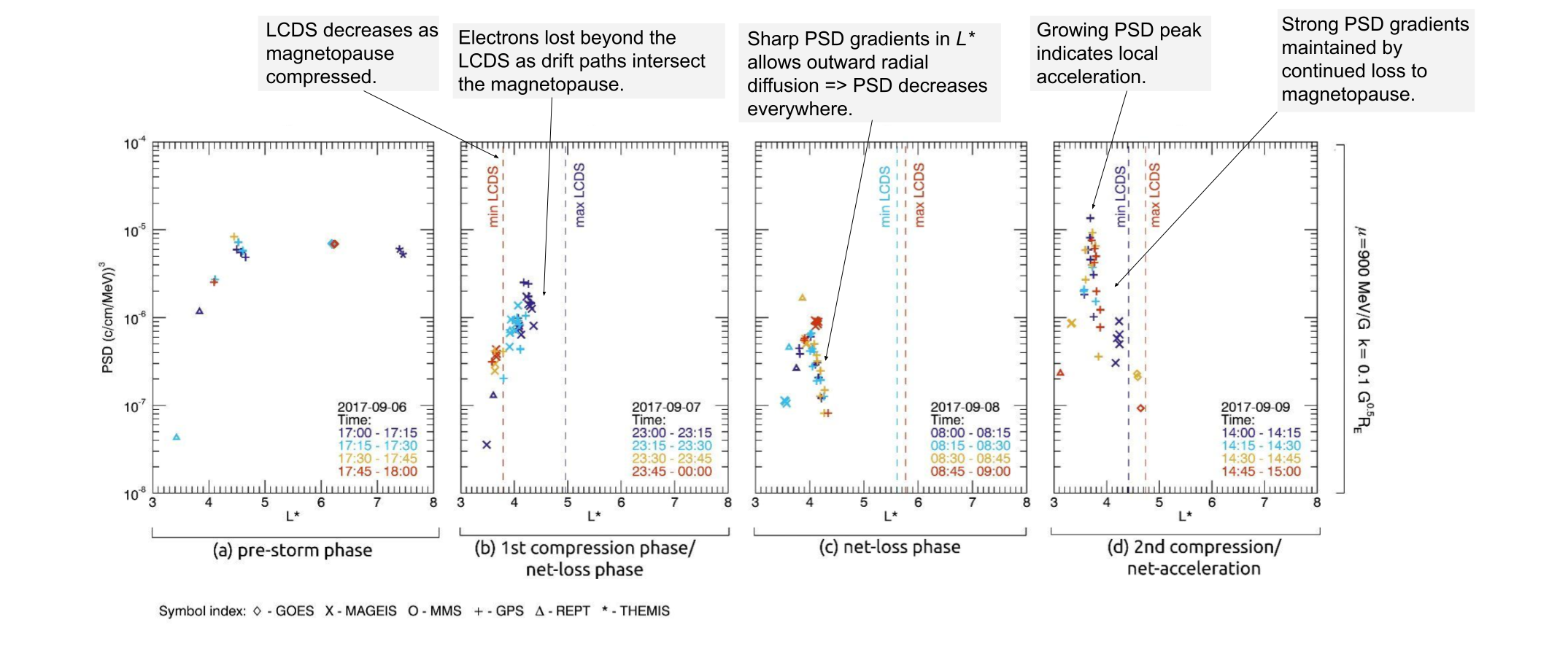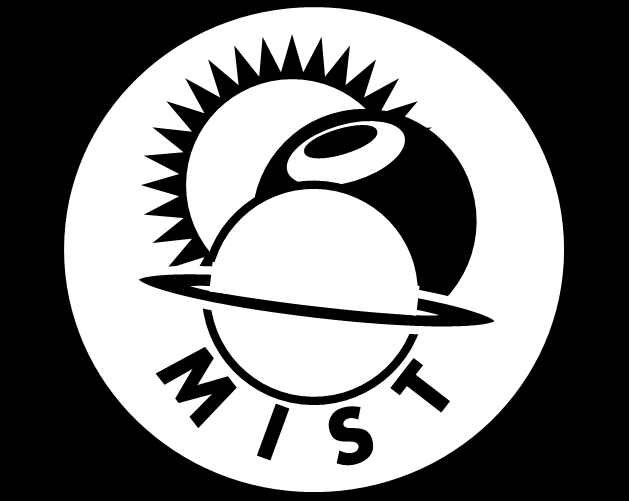MIST
Magnetosphere, Ionosphere and Solar-Terrestrial
Resolving Magnetopause Shadowing Using Multimission Measurements of Phase Space Density
By Frankie Staples (formerly at MSSL UCL, now at UCLA)
Loss mechanisms act independently or in unison to drive rapid loss of electrons from the radiation belts. Electrons may be lost by precipitation into the Earth’s atmosphere, or through the magnetopause into interplanetary space – a process known as magnetopause shadowing. The mechanisms by which electrons are lost may be identified through changes to electron phase space density (PSD). This method considers the number of particles at given adiabatic coordinates (𝝁, K, and L*), which relate the electron energy, pitch angle, and location in the magnetic field. The characteristics of PSD evolution as a function of L* can be used to identify which loss mechanism is acting. However, the rapid nature of electron flux dropouts make it extremely difficult to resolve PSD dynamics at the necessary timescales to identify the contributions of either loss mechanism.
In this study we used a new multimission dataset of PSD observations from 36 satellites to resolve the dynamics of a magnetopause shadowing induced flux dropout in September 2017. We showed that by using Van Allen Probe data alone, the physical processes causing the dropout could be misinterpreted due to limited time and/or spatial resolution. Using multimission observations provided unprecedented time and spatial resolution necessary to correctly interpret PSD dynamics.
The labelled Figure shows the magnetopause shadowing characteristics identified in PSD observations. Each panel shows PSD as a function of L* for fixed μ = 900 MeV/G and K = 0.1 G0.5RE at 1-hour intervals through phases of the storm. Symbol colours indicate when measurements were taken within the hour period, and dotted lines show the minimum and maximum L* of the last closed drift shell (LCDS) before the magnetopause.

Please see paper for full details:
Staples, F. A., Kellerman, A., Murphy, K. R., Rae, I. J., Sandhu, J. K., & Forsyth, C. (2022). Resolving magnetopause shadowing using multimission measurements of phase space density. Journal of Geophysical Research: Space Physics, 127, e2021JA029298. https://doi.org/10.1029/2021JA029298
